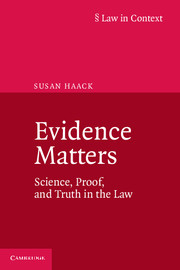The truth is too simple; one must always get there by a complicated route.
–George Sand.The truth is rarely pure and never simple. Modern life would be very tedious if it were either.
–Oscar Wilde.Truth is, at its core, quite a simple concept. At the same time, however, it is a concept mired in philosophical confusions. Moreover, on many questions the truth is complicated and subtle–hard to articulate, and difficult to discriminate from plausible falsehoods. And all this, as we shall see, is especially true of truth in the law.
The first step will be to clarify the distinction between truth (the property or phenomenon of being true) and truths (particular true claims), and to then to argue for my first thesis: that, though some propositions are true only at a given place or time, or are vague, or are only partially true, or, etc., truth itself isn’t relative, doesn’t come in degrees, and doesn’t decompose into parts, etc. (§1). The next will be to develop an approach to the understanding of truth along the lines of F. P. Ramsey’s, which will lead to my second thesis: that whatever the subject-matter of the proposition concerned, what it means to say that a proposition is true is the same–that it is the proposition that p, and p (§2). After that, I will explore the (deceptively simple-seeming) distinction between factual and legal truths, and argue for my third thesis: that legal truths, specifically truths about legal provisions, are a special sub-class of truths about social institutions, and make sense only relative to a jurisdiction and a time (§3).
